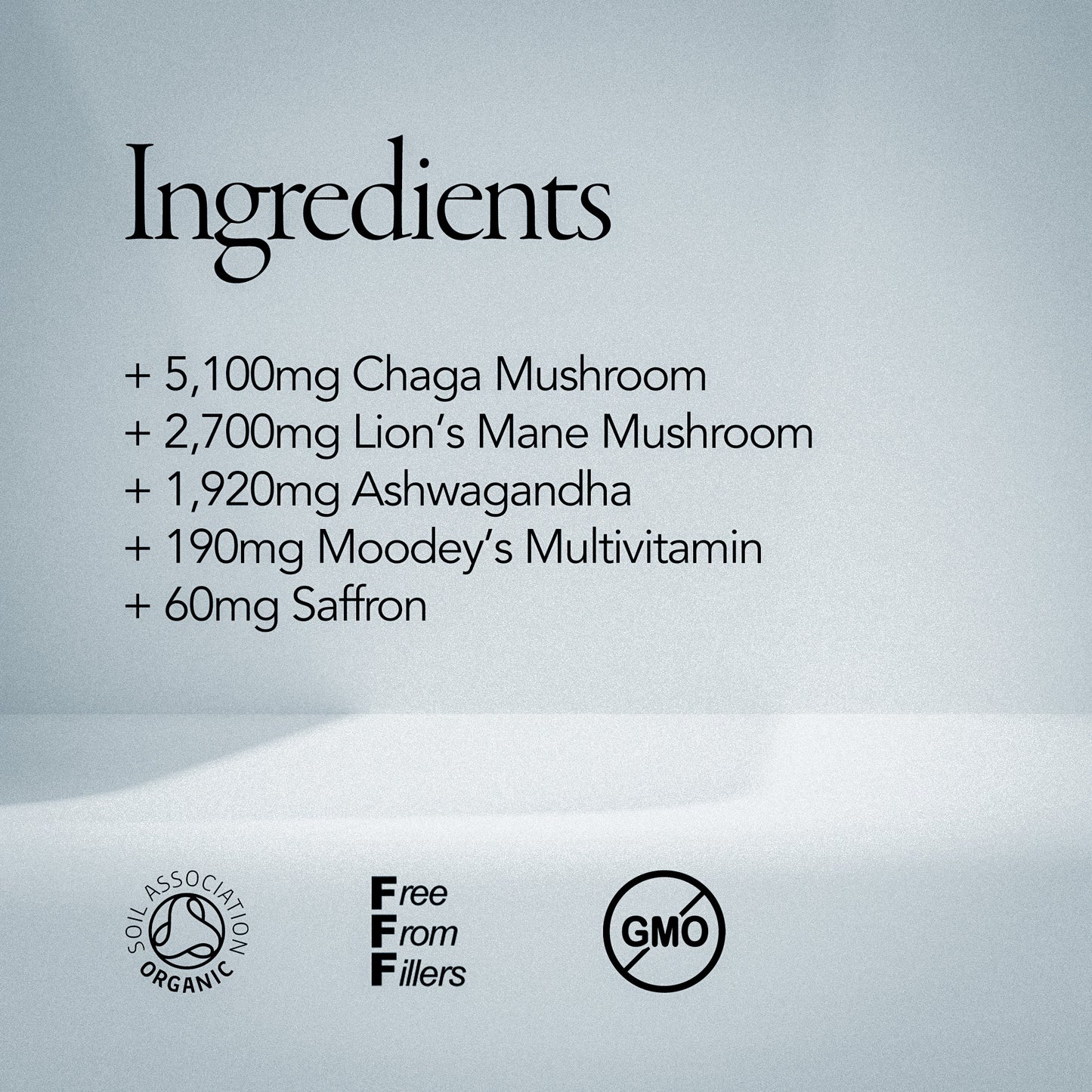
Find Saffron Supplements in the UK
Saffron is a bright red spice with a long history. Known for its colour, flavour, and aroma, saffron has been a feature in cooking and traditional medicine for centuries. But did you know that saffron supplements are gaining attention for their health benefits? From boosting mood to supporting eye health, saffron supplements can be a natural way to improve well-being.
In this article, we’ll explore what saffron supplements are. We’ll look at their benefits, potential side effects, and how to use them safely.
What Are Saffron Supplements?
Saffron supplements come from the dried stigmas (or threads) of the Crocus sativus flower. Each flower has only three tiny stigmas, which are hand-harvested, making saffron one of the most expensive spices in the world. Supplements use dried, ground saffron which is often in capsules.
Saffron contains powerful antioxidants like crocin, safranal, and picrocrocin. These compounds have shown potential health benefits, from improving mood to supporting heart and eye health. Many people are turning to saffron supplements as a natural option for various health concerns.
Benefits of Saffron Supplements
Saffron supplements offer several potential health benefits. While there needs to be more research, the current studies are promising, especially in these areas:
1. Mood Improvement and Reducing Symptoms of Depression
One of the most popular reasons people take saffron supplements is to boost mood. Research has shown that saffron can help reduce symptoms of mild to moderate depression. Saffron’s effects on mood are likely due to its ability to increase serotonin levels in the brain. This is a chemical that plays a major role in mood regulation.
In several studies, saffron supplements were as effective as common antidepressant medications for people with mild depression. Many people turn to saffron as a natural alternative to pharmaceuticals. However, it’s still important to consult a doctor before using it to treat depression.
2. Supporting Eye Health
Saffron may help support eye health, especially in aging adults. Studies suggest that saffron’s antioxidants, particularly crocin, may help protect retinal cells from damage. These studies show crocin may improve the function of the retina, which is vital for vision.
Research also suggests that saffron may help slow the progression of age-related macular degeneration (AMD). This is a condition that affects the center part of the retina and can lead to vision loss. While saffron is not a cure for AMD, it may be a supportive supplement for eye health.
3. Antioxidant and Anti-Inflammatory Effects
Saffron is rich in antioxidants, which help protect cells from oxidative stress. Oxidative stress is a process that can lead to cell damage, inflammation, and the development of chronic diseases. Antioxidants in saffron, such as crocin and safranal, help neutralize harmful free radicals and reduce inflammation in the body.
This anti-inflammatory effect may benefit people dealing with chronic inflammation. This can link to health problems like heart disease, diabetes, and arthritis. Including saffron supplements in your diet could help manage inflammation and improve overall health.
4. Improving PMS Symptoms
Premenstrual syndrome (PMS) affects many women with symptoms like mood swings, irritability, and cramps. Saffron supplements may help ease PMS symptoms, making it a popular natural option. Studies have shown that saffron can help reduce mood swings, tension, and physical discomfort during PMS.
Saffron’s mood-boosting effects are likely why it helps with PMS. This is because it may reduce anxiety and promote a better sense of well-being during the menstrual cycle.
5. Aiding Weight Loss Efforts
For people looking to lose weight, saffron supplements might offer some extra support. Studies have shown that saffron may help reduce appetite and snacking, especially in people who eat for emotional reasons. By reducing cravings, saffron can make it easier for people to stick to a healthy eating plan.
Some research also suggests that saffron may help improve metabolism and fat breakdown. Although we need more to confirm this benefit.
Potential Side Effects of Saffron Supplements
While saffron supplements are generally considered safe, taking too much saffron can lead to side effects. Common side effects of saffron supplements include:
- Drowsiness
- Dry mouth
- Nausea or upset stomach
- Headache
Taking very high doses of saffron (more than 5 grams per day) can be toxic. It may cause serious symptoms like dizziness, vomiting, and even heart complications. However, standard saffron supplement doses are usually well below this level, so these risks are rare.
Pregnant women should avoid high doses of saffron, as it may cause uterine contractions. If you are pregnant, breastfeeding, or have any health conditions, talk to your doctor before using saffron supplements.
How to Choose a Saffron Supplement
When choosing a saffron supplement, quality is important. Since saffron is expensive, some products may contain fillers or use low-quality saffron to cut costs. Here are a few tips for finding a good saffron supplement:
- Check the Source: Look for saffron that is sourced from reputable regions, such as Iran or Spain, known for high-quality saffron.
- Look for Pure Saffron Extract: Choose a supplement that uses pure saffron extract, with no fillers or additives.
- Read Reviews: User reviews can help you get a sense of the supplement’s quality and effectiveness. Look for supplements with mostly positive feedback.
- Consider Dosage: The typical dose in studies is around 15-30 mg per day. Stick to the recommended dosage to avoid side effects.
- Select a Trusted Brand: Choose a brand that is transparent about its ingredient sourcing and manufacturing practices.
How to Use Saffron Supplements
Most saffron supplements come in capsule or tablet form, which makes them easy to take. Start with the recommended dose on the product label, usually 15-30 mg per day. If you’re new to saffron supplements, you may want to start with a lower dose to see how your body reacts.
It’s best to take saffron supplements with food to reduce the chance of an upset stomach. For mood support, take saffron at the same time each day to maintain consistent effects.
Final Words on Saffron Supplements
Saffron supplements offer a natural way to support mood, eye health, and overall well-being. With its mood-boosting effects and antioxidant properties, saffron can be a valuable addition to a wellness routine.
While we need more research, the current studies are promising. As well as this, many people report positive effects from using saffron supplements.
Like any supplement, saffron works best when used as part of a balanced approach to health. Eating a nutritious diet, getting regular exercise, and managing stress are also important.
If you’re considering saffron supplements, consult with a healthcare provider to ensure they’re right for you. With proper use, saffron supplements could be a bright spot in your wellness journey, helping you feel better and enjoy life more fully.

Happy Hour


